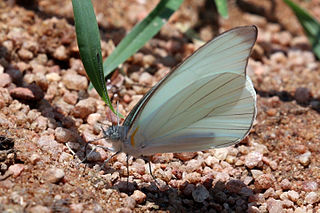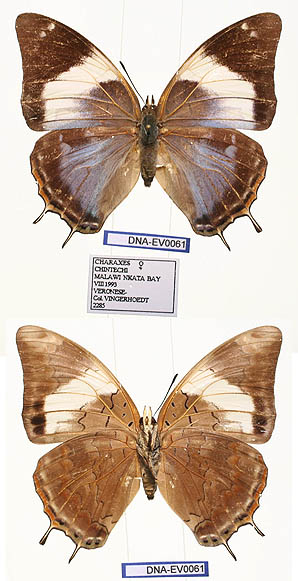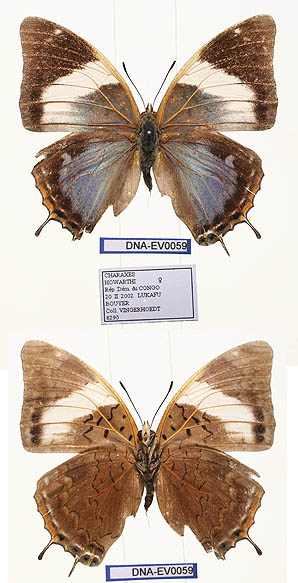This gallery of sovereign state flags shows the national or state flags of sovereign states that appear on the list of sovereign states. For flags of other entities, please see gallery of flags of dependent territories. Each flag is depicted as if the flagpole is positioned on the left of the flag, except for those of Iran, Iraq and Saudi Arabia which are depicted with the hoist to the right.

Poritia phalena, the broad-banded brilliant, is a small butterfly found in India and South-East Asia that belongs to the lycaenids or blues family. The species was first described by William Chapman Hewitson in 1874.
Caconemobius howarthi is a species of cricket known by the common name Howarth's cave cricket. It is native to Hawaii.
Kauaiina is a genus of moths in the family Geometridae erected by Jules C. E. Riotte in 1978.
Anisolabis howarthi is a blind, troglobite species of earwig in the genus Anisolabis, the family Anisolabididae, and the order Dermaptera. The species is native to Hawaii, and was first classified by Brindle in 1979. According to a paper published by him in 1980 in the journal Pacific Insects, the species is first known true troglobite earwig; while there are other blind species that live underneath soil or humus, this is the first to actually inhabit a cave.
Kauaiina ioxantha is a moth of the family Geometridae. It was first described by Edward Meyrick in 1899. It is endemic to the Hawaiian island of Kauai.
Kauaiina parva is a moth of the family Geometridae first described by Jules C. E. Riotte in 1980. It is endemic to the eastern part of the Hawaiian island of Maui.
Kauaiina alakaii is a moth of the family Geometridae first described by Jules C. E. Riotte in 1979. It is endemic to the eastern part of the Hawaiian island of Kauai, where it was collected in the Alakai Swamp, after which it is named.
Kauaiina molokaiensis is a moth of the family Geometridae first described by Jules C. E. Riotte in 1979. It is endemic to the Hawaiian island of Molokai, where it was at an altitude of 1,290 meters above Puu Kolekole.
Kauaiina montgomeryi is a moth of the family Geometridae first described by Jules C. E. Riotte in 1978. It is endemic to the eastern part of the Hawaiian island of Maui.
Kauaiina rubropulverula is a moth of the family Geometridae first described by Jules C. E. Riotte in 1989. It is endemic to Hawaii.

Xanthorhoini is a tribe of geometer moths under subfamily Larentiinae. The tribe was described by Pierce in 1914.
Ganyra howarthi, Howarth's white, is a butterfly in the family Pieridae. It is found along the coast in the southern half of Baja California and Sonora in Mexico. It is also found in extreme southern Arizona. The habitat consists of thorn forests and desert scrubs.

Ganyra is a Neotropical genus of butterflies in the family Pieridae.
Bicyclus howarthi is a butterfly in the family Nymphalidae. It is found in Cameroon, Equatorial Guinea and Gabon.

Charaxes chintechi is a butterfly in the family Nymphalidae. It is found in south-western Tanzania, eastern Zambia, northern Malawi and Mozambique. The habitat consists of Brachystegia woodland (Miombo)

Charaxes howarthi is a butterfly in the family Nymphalidae. It is found in Tanzania, northern Angola, northern Zambia and the Democratic Republic of the Congo (Shaba). The habitat consists of Brachystegia woodland and open forests.
Cymothoe howarthi is a butterfly in the family Nymphalidae. It is found in Kivu in the Democratic Republic of the Congo.
Apozomus howarthi is a species of short-tailed whip-scorpions, also known as schizomids, in the Hubbardiidae family. It is endemic to Australia. It was described in 2001 by Australian arachnologist Mark Harvey. The specific epithet howarthi honours Frank Howarth, Chillagoe cave system researcher and collector of type specimens.




